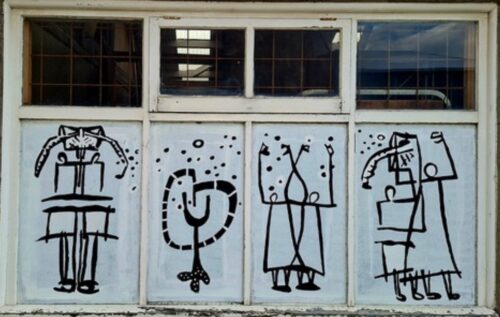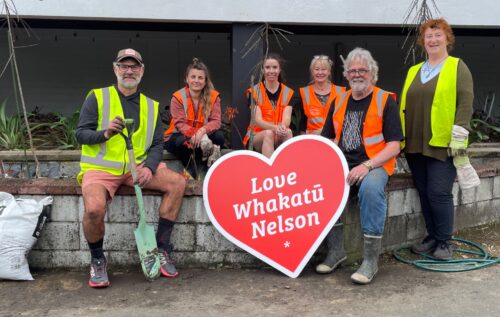Engagement with Nelson Migrant and Former Refugee Communities.
In early 2025 Shared Communities decorated a wall along Nile St. featuring the word “Thank You” in almost 50 languages. There’s a great article about the Nile St Wall in the Nelson Mail – read it here.
In early 2026, the project was moved to a new home, on the fence next to Nelson Library.
Projects like this bring volunteers together, fostering new friendships and connections, and strengthening our community bonds. Led by Shared Communities’ Cultural Navigator Karolina Serrano, this mural was a true team effort by some incredible volunteers and supporters.
The Shared Communities Initiative celebrates the diversity of Whakatū Nelson and aims to build stronger connections between Nelson’s migrant and former refugee community and the host community. Shared Communities was created in 2022, as the result of a report funded by Manatū Taonga Ministry for Culture and Heritage. You can read the full Report here. This was followed up in 2024 by a Review – click here to read it.
Shared Communities celebrates the many diverse groups in Whakatū, building stronger connections between newcomers and communities.
Check out the Shared Communities website for more information on the dozens of projects coordinated by Cultural Navigator Karolina Serrano. Her role is to be right in the middle of things, not only helping people to make social connections, but also working with our institutions on how they can be more accessible to new communities.
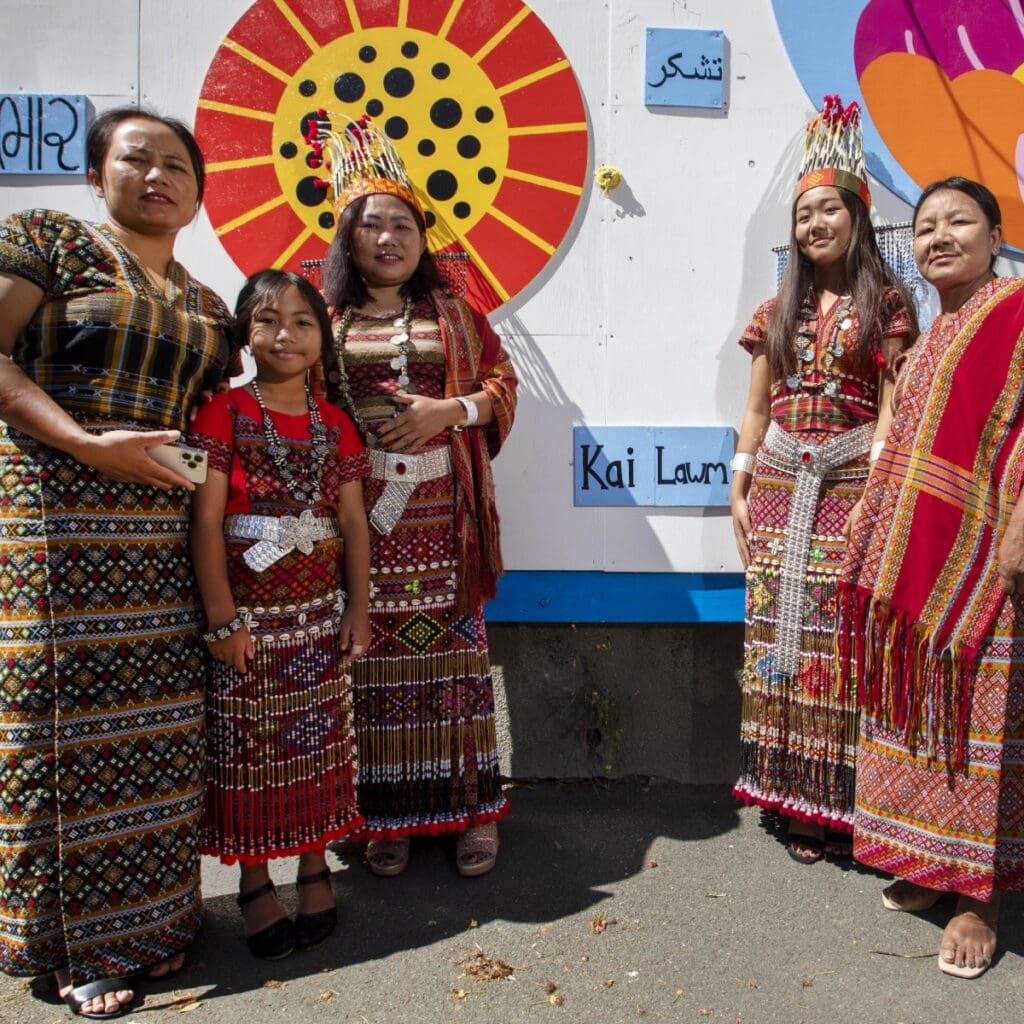
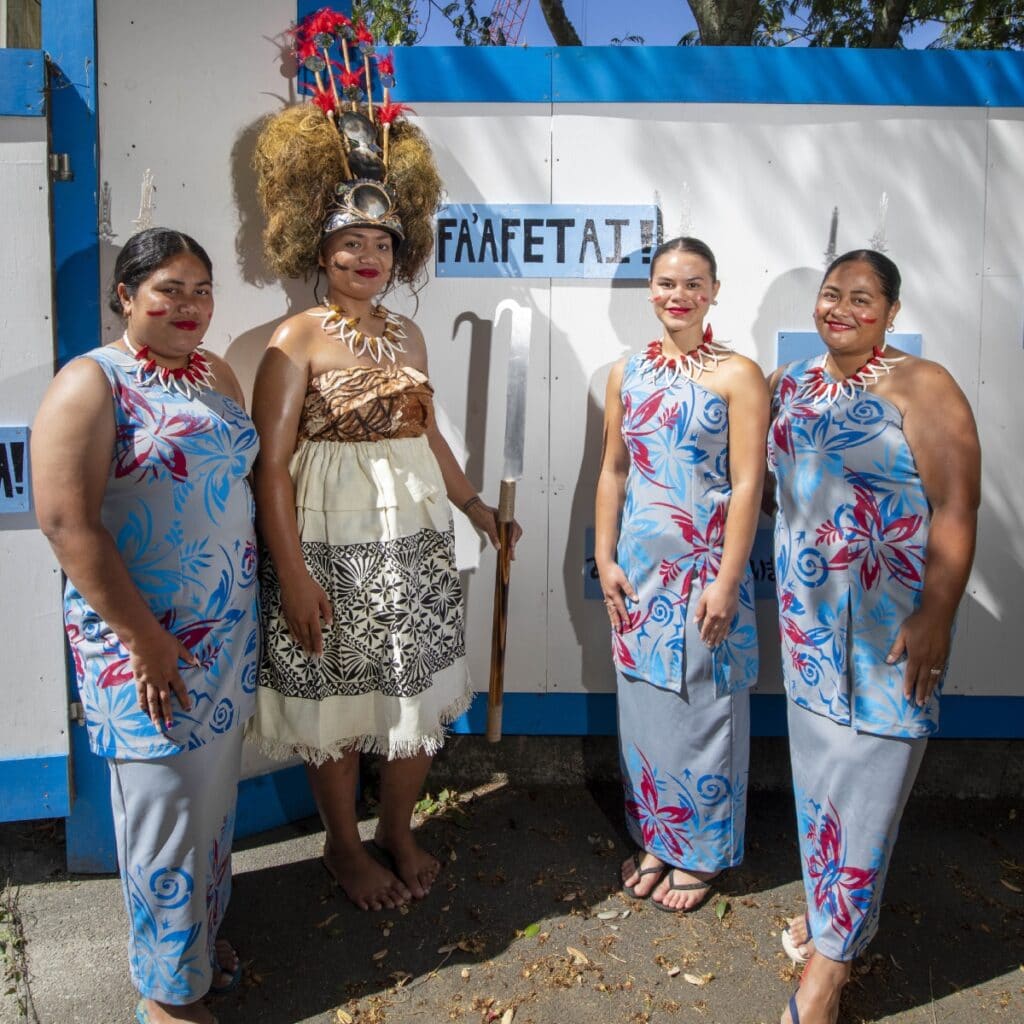
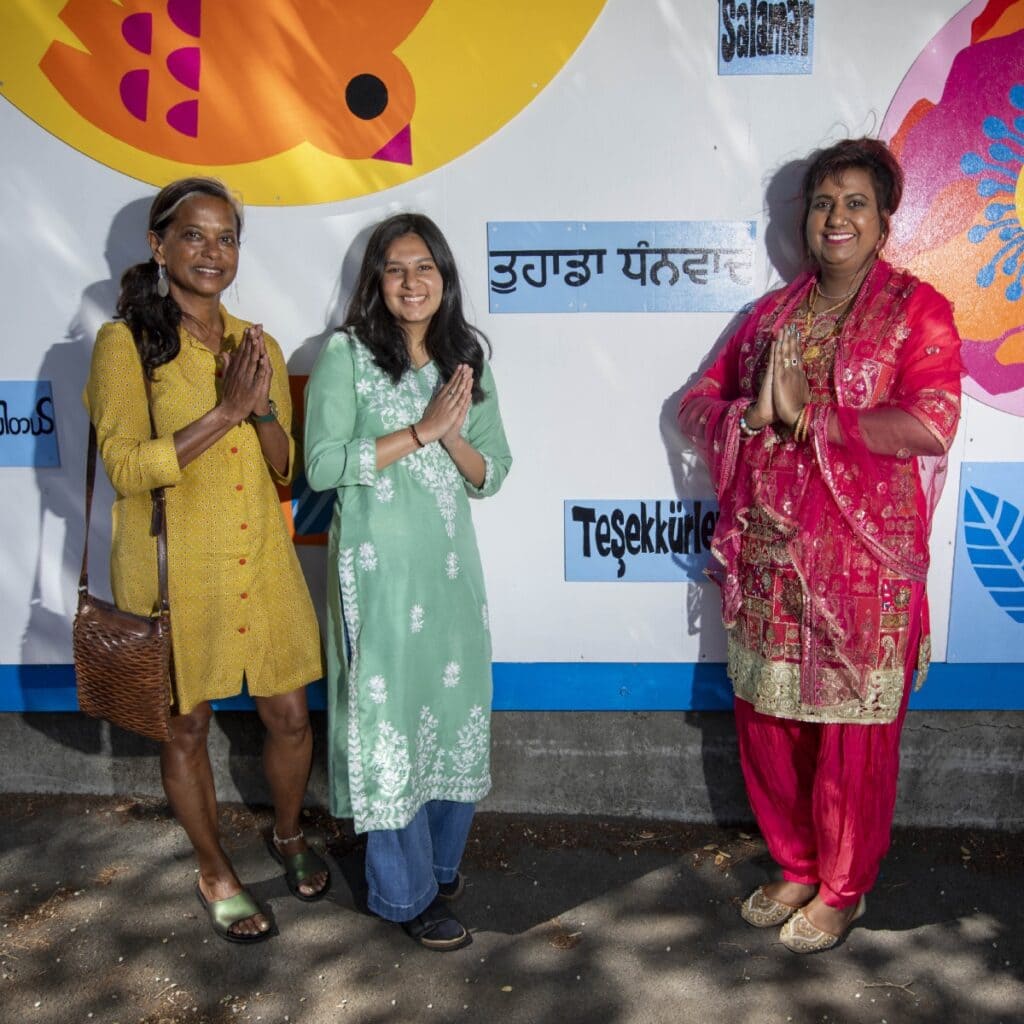
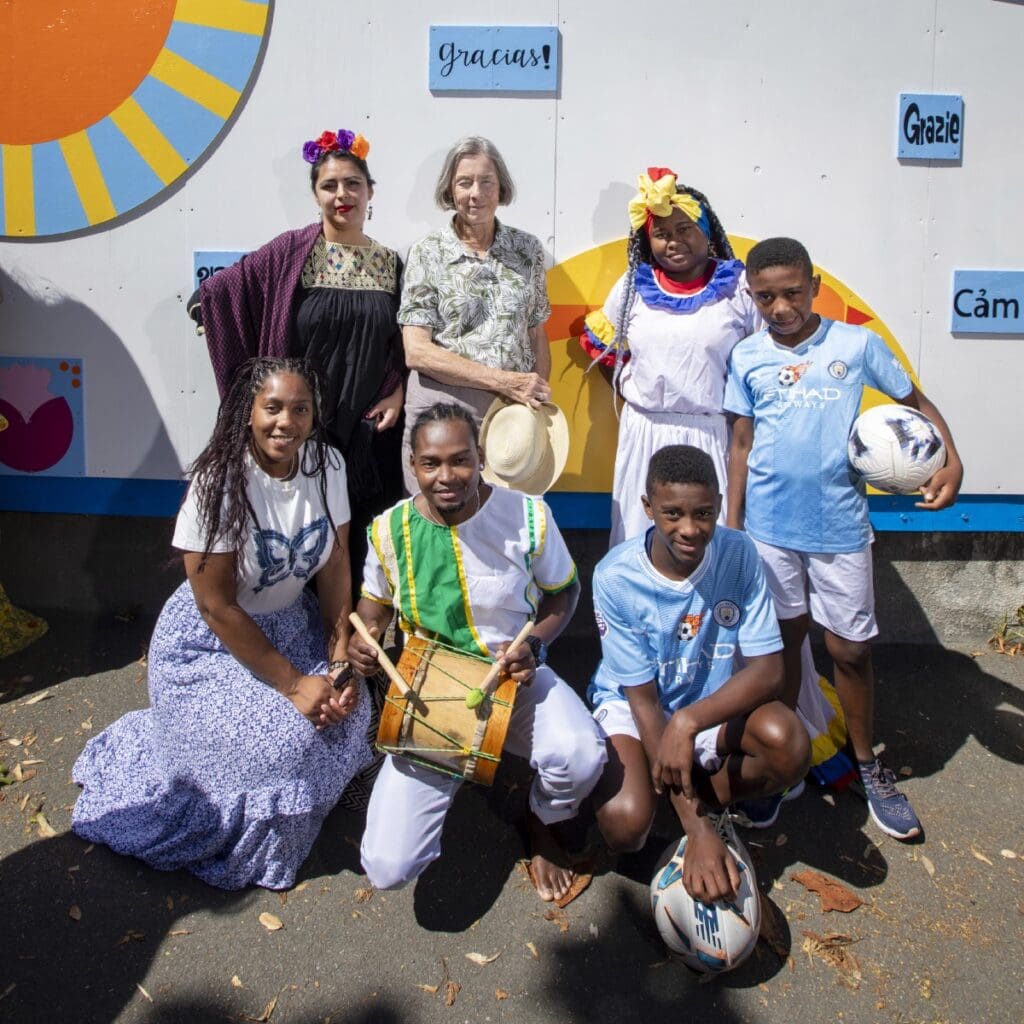
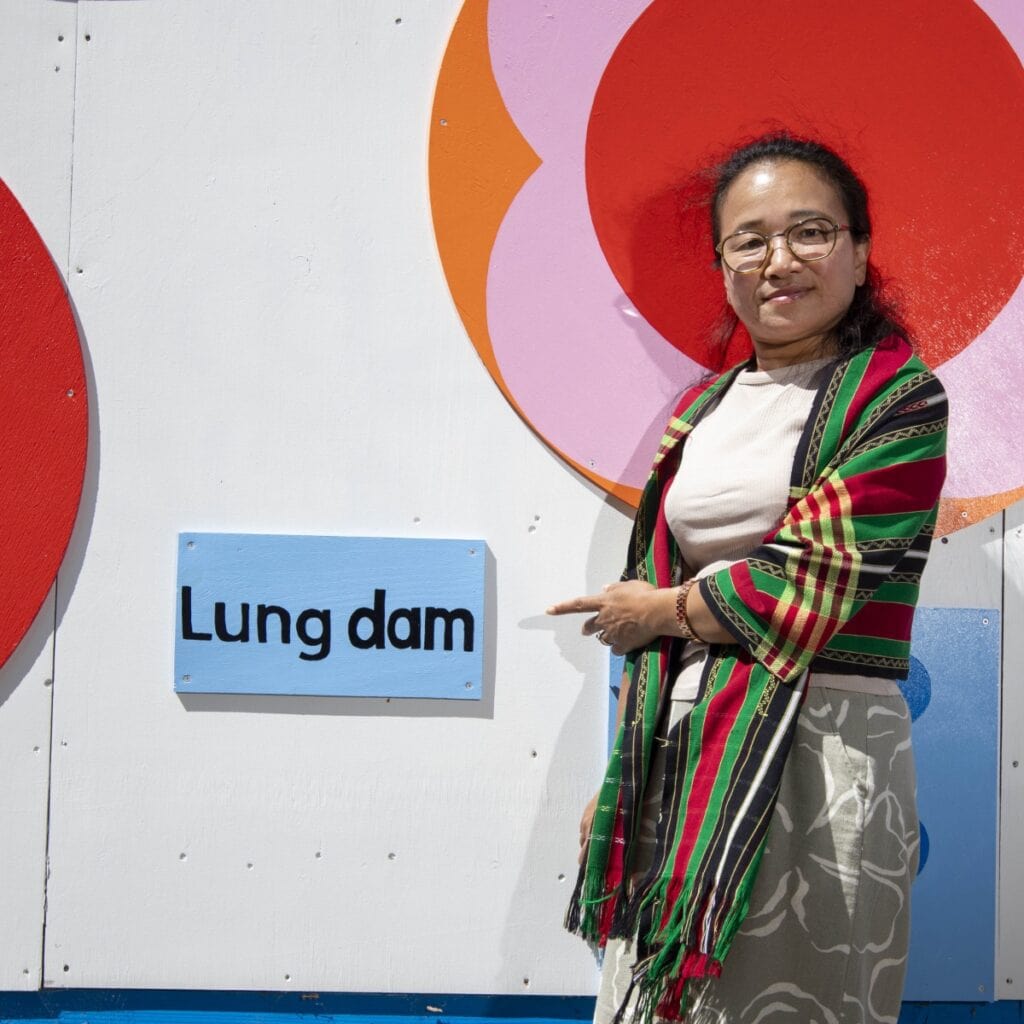
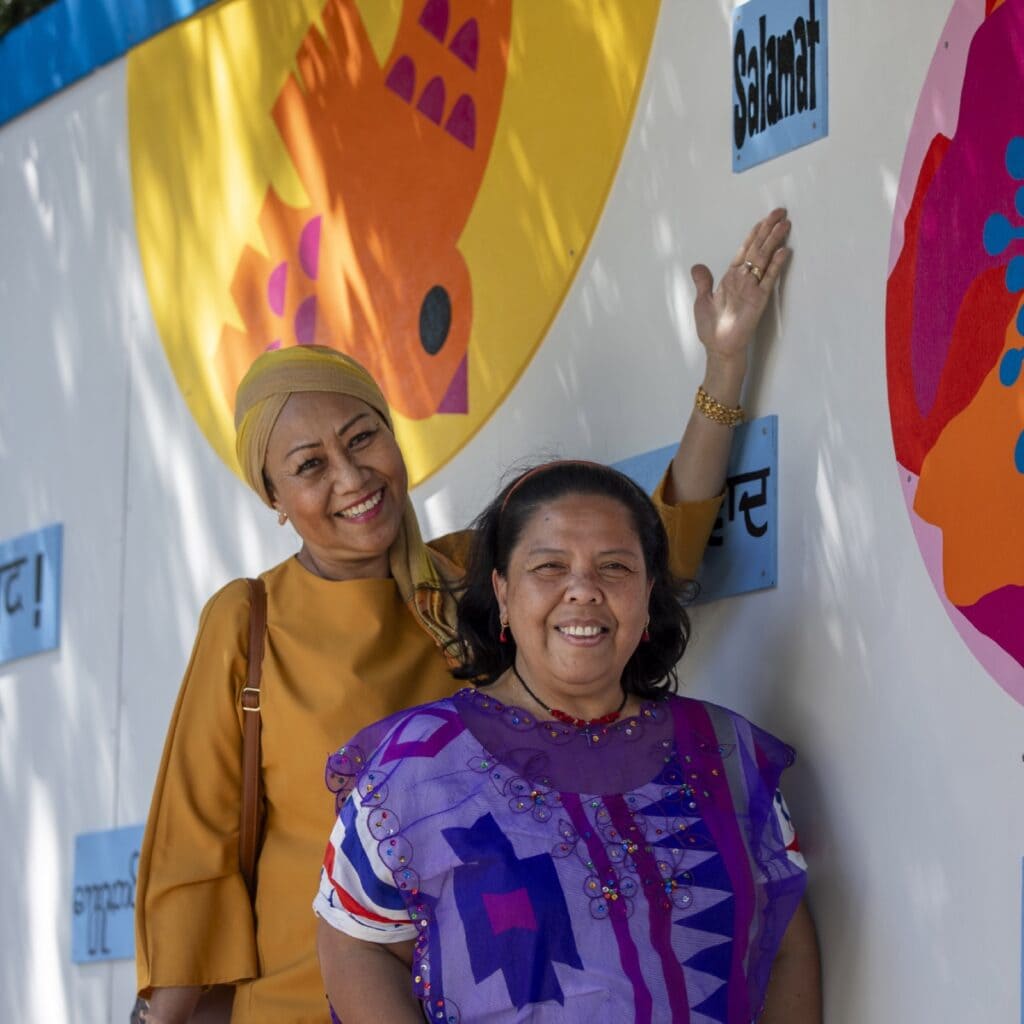
The Shared Communities Consortium was formed by Make/Shift Spaces in late 2021, with Multicultural Nelson Tasman Inc., Arts Council Nelson and Community Partnerships (Nelson City Council Te Kaunihera o Whakatū).
Whakatū Nelson is still largely viewed as a region lacking in cultural diversity even though 24% or our residents were overseas born, one of the highest percentages in New Zealand. A recent study found low social connection between newcomers and the broader Nelson community. Local initiatives like Cultural Conversations have demonstrated success in bridging the gaps through sharing of creative and traditional arts. The Shared Communities project provides the opportunity to establish a city-wide programme aimed at improving the sustainability and resilience of the arts, culture and heritage within our migrant and former refugee communities and the local population.
This project is believed to be the first known city-wide approach of this kind to develop in Aotearoa. The four key pillars of our approach are:
• Community-Led – focus on removing barriers to access
• Make/Shift Spaces – dynamic activation of vacant spaces
• Diverse Consortium – covering different facets of the community with various access points
• City-Wide Approach – amplifying arts to increase the community
The Shared Communities Consortium has scoped the work plan for research/strategy aimed at engagement with the migrant communities, working alongside migrant community leaders and engaging with migrant communities. The project aims to enable migrant communities to celebrate their culture through creative mediums they themselves have identified through the research process.
You can read the full Report here.
The consortium members share a passion for the value of connection and wellbeing through arts culture and heritage. The project has set out to access and reveal untapped resources to allow the wider community to experience them. Members have an insight into the possibilities from their unique place to see potential and build the connections to create this opportunity. The project has the potential to be meaningful. Learnings from the research and trial programme will create opportunities to scale up delivery and produce a transformational city-wide three-year community arts programme.
The aim of the project falls into three main challenges and opportunities:
1. Shift the dynamic from current leaders in the space to newcomer-led arts, culture, and heritage programmes.
2. Shift to a structured multi-year programme-based approach, rather than current fragmented events focus.
3. Determine who are the key influencers who can help bring about the change for Whakatū Nelson’s diverse migrant communities. Consortium partners can support this through the provision of space, community access and connection The Shared Communities Consortium Report is funded by Mabatū Taonga, Ministry for Culture and Heritage, and Te Urunga – Innovating Aotearoa.
